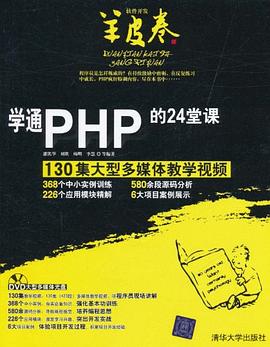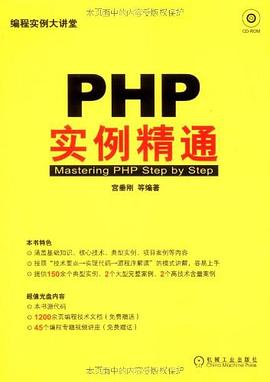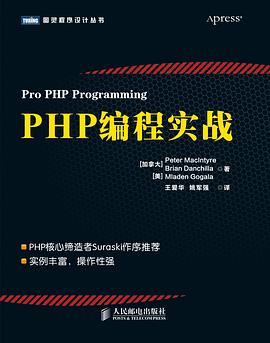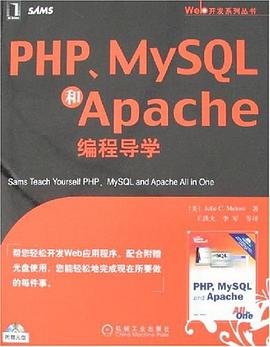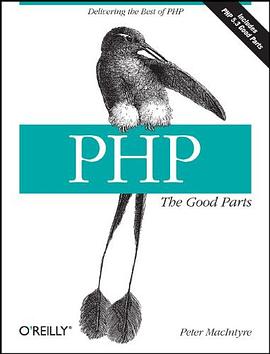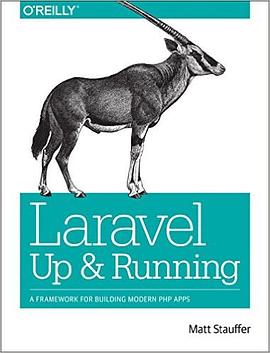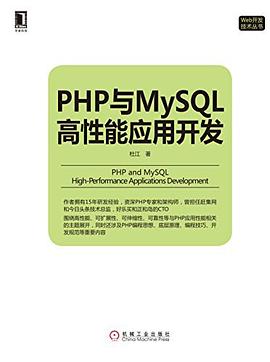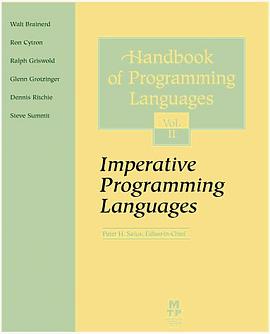
Imperative Programming Language pdf epub mobi txt 电子书 下载 2026
- Language
- Imperative Programming
- Programming Language
- Computer Science
- Algorithms
- Data Structures
- Software Development
- Programming
- Code
- Tutorial
- Fundamentals

具体描述
The aim of the Handbook of Programming Languages is to provide a single, comprehensive source of information concerning a variety of individual programming languages and methodologies for computing professionals. The Handbook is published in multiple volumes and covers a wide range of languages, organized by type and functionality.
The Handbook includes four volumes:
Volume I: Object-Oriented Programming Languages
This volume contains chapters on Smalltalk, C++, Eiffel, Ada95, Modula-3, and Java.
Volume II: Imperative Programming Languages
This volume contains chapters on Fortran, Pascal, Icon, and C, as well as a chapter on intermediate languages by Ron Cytron.
Volume III: Little Languages and Tools
This volume contains chapters on little languages and domain-specific languages, such as troff, awk, sed, Perl, Tcl and Tk, Python, and SQL. It also contains seminal work by Brian Kernighan and Lorinda Cherry as well as Jon Bentley and essays by Paul Hudak and Peter Langston.
Volume IV: Functional and Logic Programming Languages
This volume contains chapters on functional (Lisp, Scheme, Guile, and Emacs Lisp) and logic (Prolog) programming languages.
Foreword to This Volume: Imperative Programming Languages
On the simplest level, imperative programming languages are those that manipulate data in a stepwise fashion. That is, they take sequential instructions (algorithms) and apply them to data of various kinds.
Imperative languages have a “do this, then do that’’ structure. These instructions or commands are usually called statements. Most of the data items in memory have names, which are used when manipulating those items. The properties of the data items are called types. Programmers specify the relationships among representations, types, data, and names in data declarations.
A data declaration imposes structure upon data and gives it a name. The imposed structure is a specified type; the name is an identifier. All data is stored as bits. The bit pattern and the structure determine the data item’s value. The union of name, type and value is called a variable.
作者简介
Peter H. Salus is the author of A Quarter Century of UNIX (1994) and Casting the Net: From ARPANET to Internet and Beyond (1995). He is an internationally recognized expert and has been the keynote speaker at Uniforum Canada, the UKUUG, the NLUUG, and the OTA (Belgium) in the past few years. He has been executive director of the USENIX Association and of the Sun User Group and vice president of the Free Software Foundation. He was the managing editor of Computing Systems (MIT Press) from 1987 to 1996. He writes on a variety of computing topics in a number of magazines. His Ph.D. in linguistics (New York University, 1963) has led him from natural languages to computer languages.
目录信息
Chapter 1 Fortran
Chapter 2 The Development of the C Language
Chapter 3 C Programming
Chapter 4 Intermediate Languages
Chapter 5 Pascal
Chapter 6 The Icon Programming Language
· · · · · · (收起)
读后感
评分
评分
评分
评分
用户评价
《Imperative Programming Language》最让我印象深刻的一点,是它对“调试”这个看似琐碎却又至关重要的技能的重视。书中专门用了一个章节来讲解如何有效地调试代码,包括如何使用断点、单步执行、观察变量值等技巧。作者甚至分享了一些自己调试的经验和心得,这让我感觉非常贴近。我曾经是一个“凭感觉”写代码,然后“凭感觉”找bug的程序员,但通过这本书,我学会了如何系统地、有条理地去定位和解决问题。我开始使用书中介绍的调试工具,并且惊喜地发现,之前那些让我头疼不已的bug,竟然能够如此快速地被找到和修复。书中对“日志记录”的讨论也让我意识到,在程序运行时留下“足迹”的重要性,这对于事后分析和问题排查非常有帮助。这本书让我明白了,调试不仅仅是找出错误,更是理解程序运行机制的过程。
评分《Imperative Programming Language》在对编程范式进行横向比较时,也展现了其独到的见解。虽然本书的主题是命令式编程,但作者巧妙地在讲解过程中,对比了函数式编程和其他一些编程范式的特点,这让我能够站在一个更广阔的视野来理解命令式编程的优势和局限性。例如,在讲解可变状态和副作用时,作者会提及函数式编程中“不可变性”的概念,并简要说明了它如何帮助避免某些类型的bug。这种对比非常有启发性,让我能够更深刻地认识到命令式编程的独特之处,同时也激发了我进一步探索其他编程范式的兴趣。书中对“并发”和“并行”的初步探讨,虽然篇幅不长,但却为我打开了一个新的视角,让我意识到命令式编程在处理多任务场景时可能遇到的挑战,以及一些基本的应对策略。我尤其对书中关于“死锁”和“竞态条件”的解释很感兴趣,尽管只是浅尝辄止,但已经足以引起我对这些重要概念的关注。
评分这本书的写作风格非常吸引人,它不像很多技术书籍那样枯燥乏味,而是充满了作者的热情和对这门学科的热爱。我感觉作者就像一个经验丰富的老师,耐心地引导着每一个求知若渴的学生。在介绍面向过程编程的思维方式时,书中用到了很多生活化的例子,比如如何按照步骤制作一份三明治,或者如何组织一场家庭聚会。这些生动的类比,让我能够轻松地将抽象的编程概念与现实生活联系起来,从而更快地理解和掌握它们。我对书中关于“抽象”和“封装”的讨论印象深刻。作者通过将复杂的功能打包成可调用的函数,展示了如何隐藏实现细节,只暴露必要的接口,这极大地简化了程序的编写和维护。我尝试使用书中介绍的函数组合技巧,来编写一些更简洁、更模块化的代码,并且收效显著。这本书不仅教会了我如何编写命令式程序,更重要的是,它培养了我一种清晰、有条理的编程思维,这对于我未来的学习和工作都将大有裨益。
评分坦白说,《Imperative Programming Language》在讲解数据结构方面,为我打开了一扇新的大门。书中对数组、链表、栈、队列等基本数据结构的详细介绍,以及它们在命令式编程中的实现方式,让我对如何有效地组织和管理数据有了更深刻的认识。我花了大量时间去理解链表的插入和删除操作,以及它们在内存中的具体表现。书中还对不同数据结构在时间和空间复杂度上的权衡进行了分析,这让我能够根据实际需求选择最合适的数据结构,从而编写出更高效的程序。我对书中关于“哈希表”的讲解尤为感兴趣,它提供的快速查找机制,让我看到了数据结构在提升程序性能方面的巨大潜力。我尝试使用书中介绍的这些数据结构来实现一些更复杂的算法,并且惊叹于它们在简化代码和提高效率方面的作用。这本书让我明白,选择正确的数据结构,往往比优化算法本身更为重要。
评分《Imperative Programming Language》给我带来的最大冲击,在于它对“状态”这个核心概念的深入剖析。命令式编程,顾名思义,就是通过一系列的指令来改变程序的状态,而这本书恰恰将这一点摆在了教学的中心。作者通过大量的实例,展示了变量如何随着程序的执行而变化,以及这些变化如何影响程序的最终输出。我曾经在编写一些包含复杂交互的程序时,常常陷入“不知道程序到底发生了什么”的困境,而这本书帮助我建立了一种“跟踪式”的思维方式。当我遇到问题时,我不再只是盲目地修改代码,而是能够通过分析程序的执行流程,准确地定位出导致错误的那个“状态转移”。书中对赋值语句的细致讲解,让我理解了“值”和“引用”的区别,这在处理复杂数据结构时尤为关键。我花了许多时间去实践书中关于“副作用”的讨论,并学会如何尽量减少不必要的副作用,从而编写出更易于理解和维护的代码。这本书让我摆脱了对“黑箱”式编程的依赖,让我能够真正理解程序是如何一步步工作的,这是一种非常宝贵的技能。
评分我必须赞扬《Imperative Programming Language》在代码质量和可读性方面的强调。书中反复提及,编写出能够工作的代码固然重要,但编写出清晰、易于理解和维护的代码同样重要。作者在讲解变量命名、代码注释以及代码结构时,提供了许多实用的建议。我曾经是一个“能跑就行”的程序员,但通过阅读这本书,我开始意识到,代码的可读性直接影响到团队协作的效率,也决定了程序的可维护性。书中提供的“坏味道”代码示例,以及如何改进它们的分析,让我对如何写出“干净”的代码有了更深刻的理解。我特别喜欢书中关于“单一职责原则”的讨论,即使在命令式编程的语境下,将每个函数或模块的功能限定在一个明确的范围内,也能够极大地提升代码的质量。我开始尝试在自己的项目中应用这些原则,并惊喜地发现,我的代码变得更容易调试,也更少出现意外的bug。
评分这本书的练习题设计得非常精妙,它们不仅仅是简单的知识点巩固,更像是对读者思维的一次次“考试”。我花了大量的时间去反复推敲那些涉及指针和内存管理的题目,每一次的成功调试都让我对这些底层概念有了更深的理解。书中还提供了一些“挑战性”的题目,这些题目往往需要读者结合多个知识点,进行综合运用和创新思考。我记得有一个题目,要求我实现一个简单的文本编辑器功能,这让我不得不去深入理解字符串操作、文件I/O以及如何高效地管理数据。完成这个题目后,我感觉自己不仅仅是掌握了命令式编程的知识,更是学会了如何用编程的思维去解决实际问题。书中对错误处理机制的介绍也让我受益匪浅,我学习了如何使用 `try-catch` 块来优雅地处理异常,如何编写健壮的代码来应对各种不可预期的输入。
评分这本书给我的感觉是,它仿佛一位严谨的建筑师,在为读者搭建命令式编程的宏伟大厦。从地基的打牢——也就是基础数据类型和变量,到主体结构的构建——如流程控制语句和函数,再到最后的装饰和细节——例如错误处理和调试技巧,每一个环节都规划得井井有条。我尤其喜欢书中在讲解算法设计时所采用的方法论。它并没有直接给出最优解,而是引导读者思考如何将问题分解成更小的、可管理的子问题,然后一步步地构建解决方案。这种“由小见大”的思维模式,让我受益匪浅,也让我对如何系统地解决编程问题有了全新的认识。书中提供的图解和流程图也极大地帮助了我理解复杂的程序逻辑,它们将抽象的概念可视化,使我更容易捕捉到程序的执行路径和数据流向。我反复阅读了关于数组和结构体的内容,并尝试使用它们来解决书中给出的一些实际问题。书中对字符串处理的章节也相当实用,提供了许多高效的操作方法,这对于处理文本数据非常有用。总而言之,这本书不仅仅是一本技术手册,更是一本思维训练的宝典,它塑造了我严谨细致的编程习惯。
评分这本书真是让我眼前一亮!起初我抱着试试看的心态翻开《Imperative Programming Language》,但很快就被它循序渐进的讲解方式和清晰的逻辑所吸引。作者并没有一开始就抛出晦涩难懂的概念,而是从最基础的变量、数据类型以及简单的算术运算入手,一步步引导读者理解命令式编程的核心思想。我尤其欣赏它在解释控制流语句(如 `if-else`、`for` 循环、`while` 循环)时所用的生动比喻和详实的示例。例如,在讲解 `for` 循环时,作者将它比作一个精确执行指令的机器人,每次循环都准确无误地执行预设的动作,这让我瞬间就抓住了循环的精髓。书中提供的练习题也极具挑战性,但又不会让人望而却步,它们巧妙地结合了课堂上学到的知识点,能够有效地巩固理解。我花了很长时间去钻研那些稍显复杂的题目,但每当攻克一个难题时,那种成就感是难以言喻的。这本书让我对命令式编程的理解上升到了一个新的高度,也为我今后学习更高级的编程范式打下了坚实的基础。即便我之前已经接触过一些编程概念,但通过这本书的系统梳理,许多之前模糊不清的地方都变得豁然开朗。它就像一位经验丰富的向导,带领我在命令式编程的广阔天地里,看到了前所未见的风景,也让我对手中的“工具”有了更深刻的认识和更熟练的掌握。
评分我必须说,《Imperative Programming Language》在概念的阐释上做得相当出色。它并没有仅仅停留在语法层面,而是深入挖掘了命令式编程模型背后的哲学和原理。作者在介绍函数和过程时,不仅仅是讲解如何定义和调用,更着重强调了它们在模块化、代码复用以及抽象化方面的作用。对于递归这个概念,书中给出了好几个经典案例,比如计算阶乘、斐波那契数列,并且细致地分析了递归调用栈的工作原理,这对于初学者理解递归的“回溯”过程至关重要。我曾一度对递归感到困惑,但在阅读了这本书的章节后,那种迷雾终于散去,取而代之的是一种清晰的洞察力。书中对变量作用域和生命周期的讨论也十分详尽,这对于避免潜在的bug和编写健壮的代码至关重要。它让我明白了,为什么有时候一个变量在某些地方可以访问,而在另一些地方却不行,这种对“可见性”的深入剖析,直接提升了我代码的质量。此外,书中对指针和内存管理的讨论,虽然触及了一些更底层的主题,但作者的处理方式非常恰当,既保证了概念的准确性,又避免了过于技术化的术语堆砌,让读者能够循序渐进地理解这些复杂但重要的概念。
评分 评分 评分 评分 评分相关图书
本站所有内容均为互联网搜索引擎提供的公开搜索信息,本站不存储任何数据与内容,任何内容与数据均与本站无关,如有需要请联系相关搜索引擎包括但不限于百度,google,bing,sogou 等
© 2026 book.wenda123.org All Rights Reserved. 图书目录大全 版权所有












